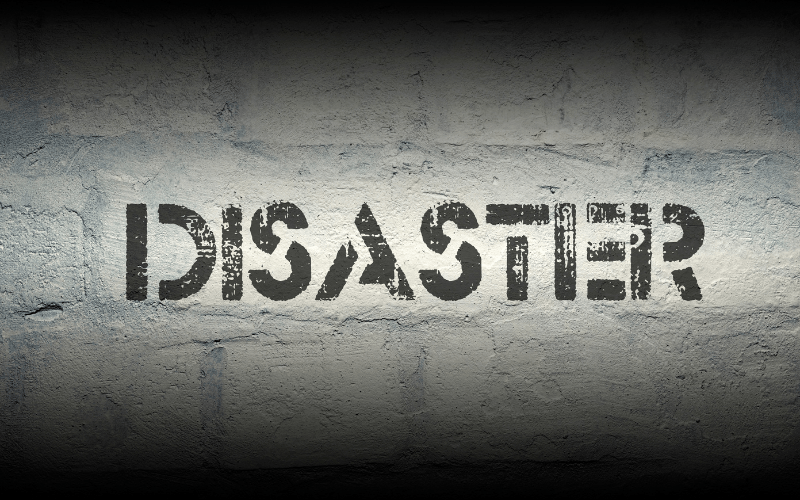December 3 is International Day of Persons with Disabilities, a day to celebrate and recognize the diverse experiences, capabilities, and contributions of people who have differing abilities. Standing alongside people with disabilities includes standing for accessibility, safety, community acceptance, independent living and quality of life, full and active participation in society, and equal access to education and employment.
EMDR therapists working with persons with intellectual and developmental disabilities (IDD) are encouraged to learn about ways these clients are overlooked in our social system, how best to provide inclusive care, and to advocate for inclusive changes and actions in both policies and in physical practice spaces. In addition, alongside honoring the specific traumas this population may have experienced, it is equally important to learn about the celebrations and joy experienced in communities of people with differing abilities.
We checked in with Andrew Seubert, LMHC, NCC, EMDRIA Approved Consultant and Trainer, who has used EMDR therapy with individuals who experience intellectual and developmental disabilities (IDD).
Andrew Seubert, LMHC
Tell us a little bit about you, your experience becoming an EMDR therapist and your experience with clients who have intellectual or developmental disabilities (IDD)?
My original training was in music therapy and creative art therapies. This was followed by several years of an Existential Gestalt approach to therapy. Both areas of training brought me to the awareness of the central role of experience in working with clients of all kinds. Before EMDR came along, I had spent 15 years using the experiential aspects of music and Gestalt therapies with clients with IDD. EMDR, primarily an experiential agent of change, added the capacity to resolve painful experiences without having to engage in left-brain activity, an area of functioning that these clients may struggle with. This, of course, required certain adaptations to the EMDR protocol.
What successes have you seen regarding the use of EMDR therapy with clients who have IDD?
In a word, much of what my clients taught me was relationship first, then let’s see if we can find a language—be it music, a creative art, movement—that can connect us. Much of what I learned was similar to approaches with children: keep it concrete, present time-oriented, and experiential. The combination of these elements and EMDR proved to be quite effective, particularly with clients within the moderate to a mild range of disability. Additionally, helping clients with IDD develop self-and other awareness (including body awareness) as a primary goal was of immeasurable importance.
What myths would you like to bust about using EMDR therapy with these clients?
Traditionally, clients with IDD were considered poor candidates for therapy, but we have come a long way since then. A strong attachment bond with the therapist, experiential therapies, and EMDR (basically a non-verbal therapy) together form a powerful team. I’ve seen many clients move through painful material quickly, possibly, as with children, because they often don’t carry the complicated and cognitive baggage of non-disabled clients.
What is your favorite free resource or resources that you would suggest to other EMDR therapists when working with clients with IDD?
The free articles on our website might help www.clearpathtrainingcenter.com/intellectually-disabled-clients.html. In addition, I have authored a chapter in EMDR Solutions (Shapiro, R., 2005) and co-authored a chapter in Cultural Competence and Healing Culturally Based Trauma with EMDR Therapy (Nickerson, 2017) on this topic.
Anything else you would like to add?
I believe that serving our brothers and sisters with Intellectual or Developmental Disabilities is in fact a gift and a privilege. Feel free to contact me if I can be of any assistance at seuberta@mac.com

Andrew Seubert, LMHC, NCC, EMDRIA Approved Consultant and Trainer, is the co-founder of ClearPath Healing Arts Center on Seneca Lake in Burdett, N.Y. A licensed psychotherapist for 40 years, he has an extensive background in Existential-Gestalt Therapy and in music therapy and provides EMDR consultation and training for clinicians.
His first book, The Courage to Feel: A practical guide to the power and freedom of emotional honesty, was published by Infinity Publishers in 2008 (2nd edition 2021). He has authored various book chapters and articles and How Simon Left His Shell, a fable and User’s Guide based on The Courage to Feel, to teach children and adolescents emotional honesty. In 2018, Andrew authored an article, Becoming Known: A relational model utilizing Gestalt and Ego State assisted EMDR in treating eating disorders, in the Journal of EMDR Practice and Research and is the co-editor of Trauma-informed Approaches to Eating Disorders (2018).
Resources
- Barol, B. I., & Seubert, A. (2010). Stepping stones: EMDR treatment of individuals with intellectual and developmental disabilities and challenging behavior. Journal of EMDR Practice and Research, 4(4), 156-169. Open access: https://doi.org/10.1891/1933-3196.4.4.156
- Barrowcliff, A. L., & Evans, G. A. L. (2015). EMDR treatment for PTSD and intellectual disability: A case study. Advances in Mental Health and Intellectual Disability, 9(2), 90-98. https://doi.org/10.1108/AMHID-09-2014-0034
- Byrne, G. (2020). A systematic review of treatment interventions for individuals with intellectual disability and trauma symptoms: A review of the recent literature. Trauma, Violence, and Abuse, published online. https://doi.org/10.1177/1524838020960219
- Centers for Disease Control and Prevention. Disability impacts all of us. www.cdc.gov/ncbddd/disabilityandhealth/infographic-disability-impacts-all.html
- Centers for Disease Control and Prevention. Disability inclusion. www.cdc.gov/ncbddd/disabilityandhealth/disability-inclusion.html
- Dilly, R. (2014). Eye movement desensitization and reprocessing in the treatment of trauma with mild intellectual disabilities: A case study. Advances in Mental Health and Intellectual Disabilities, 8(1), 63-71. https://doi.org/10.1108/AMHID-06-2013-0036
- Karatzias, T., Brown, M., Taggart, L., Truesdale, M., Sirisena, C., Walley, R., Mason-Roberts, S., Bradley, A., & Paterson, D. (2019). A mixed-methods, randomized controlled feasibility trial of eye movement desensitization and reprocessing (EMDR) plus standard care (SC) versus SC alone for DSM-5 posttraumatic stress disorder (PTSD) in adults with intellectual disabilities. Journal of Applied Research of Intellectual Disabilities, 32(4), 806-818. https://doi.org/10.1111/jar.12570
- Luteijn, I., VanDerNagel, J. E. L., van Duijvenbode, N., de Haan, H. A., Poelen, E. A. P., & Didden, R. (2020). Post-traumatic stress disorder and substance use disorder in individuals with mild intellectual disability or borderline intellectual functioning: A review of treatment studies. Research in Developmental Disabilities, 105, 103753. https://doi.org/10.1016/j.ridd.2020.103753
- Mevissen, L., Ooms-Evers, M., Serra, M., de Jongh, A., & Didden, R. (2020). Feasibility and potential effectiveness of an intensive trauma-focused treatment programme for families with PTSD and mild intellectual disability. European Journal of Psychotraumatology, 11(1), 1777809. Open access: https://doi.org/10.1080/20008198.2020.1777809
- National Institutes of Health. About Intellectual and Developmental Disabilities. www.nichd.nih.gov/health/topics/idds/conditioninfo
- Ooms-Evers, M., van der Graaf-Loman, S., van Duijvenbode, N., Mevissen, L., & Didden, R. (2021). Intensive clinical trauma treatment for children and adolescents with mild intellectual disability or borderline intellectual functioning: A pilot study. Research in Developmental Disabilities, 117, 104030. Open access: https://doi.org/10.1016/j.ridd.2021.104030
- Porter, J. L. B. (2022). EMDR Therapy with people who have intellectual disabilities: Process, adaptations and outcomes. Advances in Mental Health and Intellectual Disabilities. Online. https://doi.org/10.1108/AMHID-07-2021-0033
- Seubert, A. (2005). EMDR with clients with mental disability. In R. Shapiro (Ed.), EMDR Solutions: Pathways to Healing (pp. 293-311). New York, NY: W. W. Norton & Co.
- Smith, A. N., Laugharne, R., Oak, K., & Shankar, R. (2021). Eye movement desensitization and reprocessing therapy for people with intellectual disability in the treatment of emotional trauma and post traumatic stress disorder: A scoping review. Journal of Mental Health Research in Intellectual Disabilities. https://doi.org/10.1080/19315864.2021.1929596
- United Nations. International Day of Persons with Disabilities, 3 December. www.un.org/en/observances/day-of-persons-with-disabilities
- United Nations. Five things you need to know about living with a disability during COVID-19. www.un.org/en/desa/five-things-you-need-know-about-living-disability-during-covid-19
- Unwin, G., Willott, S., Hendrickson, S., & Stenfert Kroese, B. (2019). Eye movement desensitization and reprocessing for adults with intellectual disabilities: Process issues from an acceptability study. Journal of Applied Research in Intellectual Disabilities, 32(3), 635-647. https://doi.org/10.1111/jar.12557
- Yaskin, J. C., & Seubert, A. (2017). Left out and left behind: EMDR and the cultural construction of intellectual disability. In M. Nickerson (Ed.), Cultural Competence and Healing Culturally Based Trauma with EMDR Therapy (pp.247-260). New York, NY: Springer Publishing.
Back to Focal Point Blog Homepage
Additional Resources
If you are a therapist interested in the EMDR training:
- Learn more about EMDR at the EMDRIA Library
- Learn more about EMDR Training
- Search for an EMDR Training Provider
- Check out our EMDR Training FAQ
If you are EMDR trained:
- Check out EMDRIA’s Let’s Talk EMDR Podcast
- Check out the EMDRIA blog, Focal Point
- Learn more about EMDRIA membership
- Search for Continuing Education opportunities
If you are an EMDRIA Member:
- Learn more about EMDR Consultation
- Find clinical practice articles in EMDRIA’s Go With That Magazine™️
- Search for articles in Journal of EMDR Practice and Research in the EMDRIA Library
Date
December 3, 2021
Contributor(s)
Andrew Seubert
Client Population
Disabilities
Practice & Methods
DEI/IDEA





